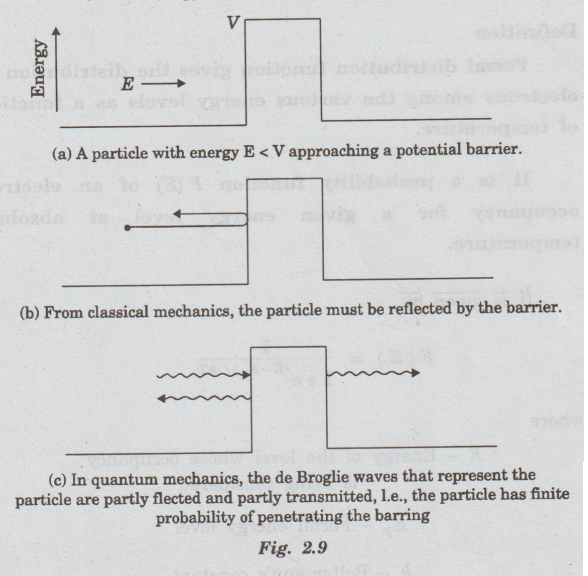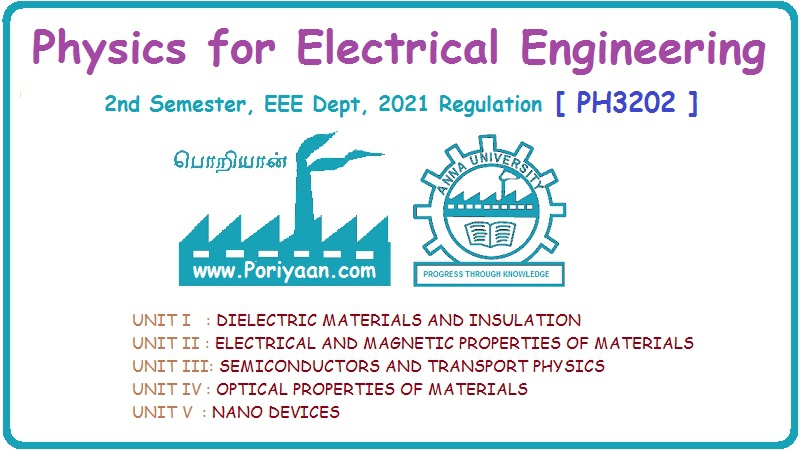Physics for Electrical Engineering: Unit II: a. Electrical Properties of Materials
Tunneling
Electrical Properties of Materials
According to classical ideas, a particle striking a hard wall has no chance of leaking through it. But, the behaviour of a quantum particle is different due to the wave nature associated with it.
TUNNELING
•
According to classical ideas, a particle striking a hard wall has no chance of
leaking through it. But, the behaviour of a quantum particle is different due
to the wave nature associated with it.
•
We know that when an electromagnetic wave strikes at the interface of two
media, it is partly reflected and partly transmitted through the interface and
enters the second medium.
•
In a similar way the de Broglie wave also has a possibility of getting partly
reflected from the boundary of the potential well and partly penetrating
through the barrier.
•
Fig. 2.9 shows a particle with energy E< V approaching potential barrier of
height V.
•
An electron of total energy E approaches the barrier from the left. From the
view-point of classical physics, the electron would be reflected from the
barrier because its energy E is less than V.
•
For the particle to overcome the potential barrier, it must have an energy
equal to or greater than V.

Quantum mechanics leads to an
entirely new result. It shows that there is a finite chance for the electron to
leak to the other side of the barrier.
It
is noted that the electron tunneled through the potential barrier and hence in
quantum mechanics, this phenomenon is called tunneling.
The
transmission of electrons through the barrier is known as barrier penetration.
Physics for Electrical Engineering: Unit II: a. Electrical Properties of Materials : Tag: : Electrical Properties of Materials - Tunneling
Related Topics
Related Subjects
Physics for Electrical Engineering
PH3202 2nd Semester 2021 Regulation | 2nd Semester EEE Dept 2021 Regulation
